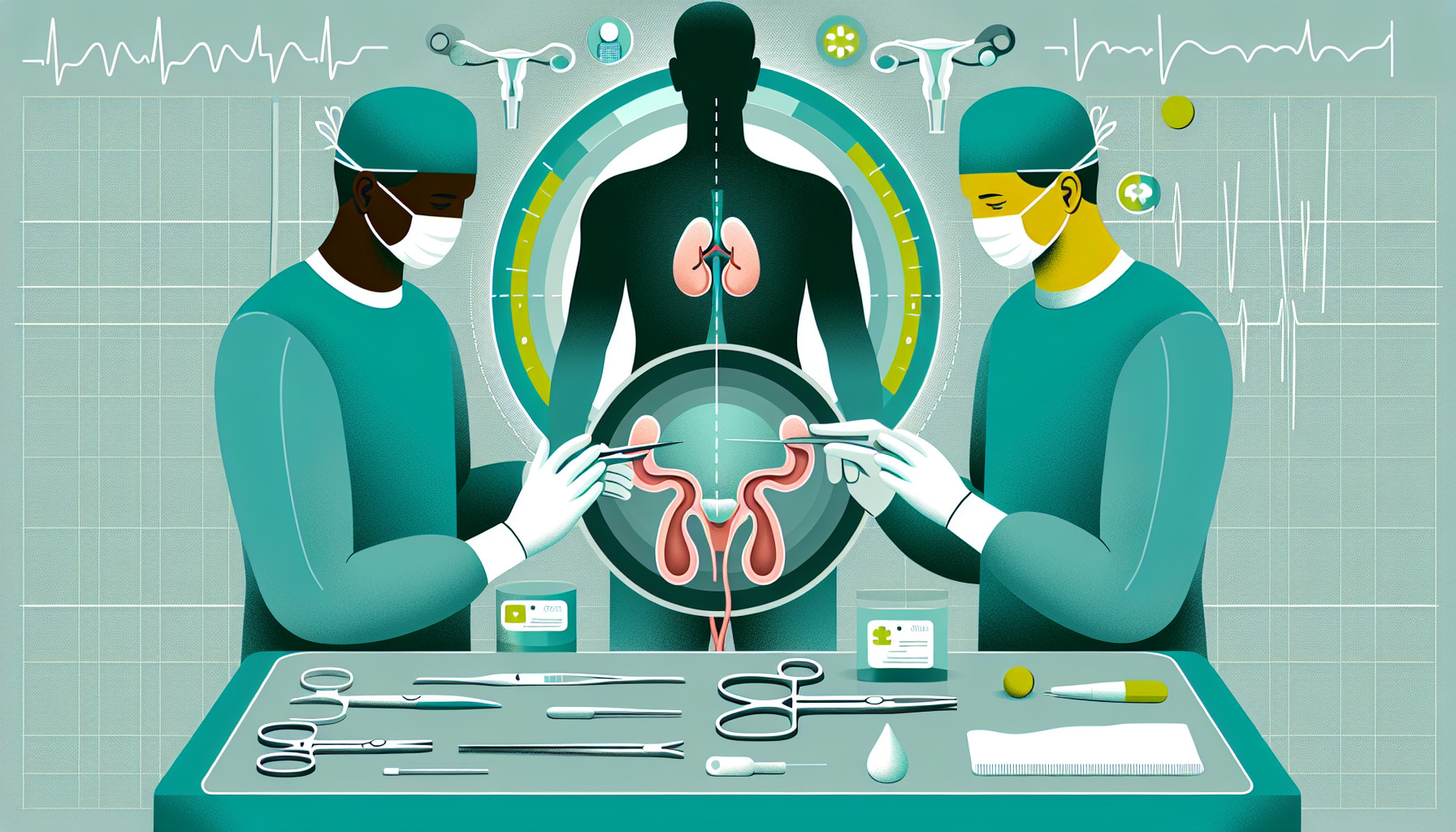Our Summary
This research paper discusses how robotic surgery is becoming more popular in the treatment of bladder cancer. This approach has been found to have similar cancer treatment results compared to traditional methods, but with the added benefits of a shorter hospital stay and less need for blood transfusions during surgery. The paper also refers to guidelines from expert surgeons on how to effectively integrate this robotic method into the cancer treatment process.
FAQs
- What is the role of the robotic approach in radical cystectomy?
- How does robotic surgery for cystectomy impact hospital stay and perioperative transfusions?
- Are there published guidelines on how to implement the robotic approach for cystectomy in the urologic oncology clinic?
Doctor’s Tip
One helpful tip a doctor might tell a patient about cystectomy is to follow post-operative care instructions carefully, including proper wound care, pain management, and instructions for resuming activities. It is important to attend all follow-up appointments and communicate any concerns or changes in symptoms to your healthcare provider promptly. Additionally, maintaining a healthy lifestyle, including regular exercise and a balanced diet, can help promote healing and overall well-being after surgery.
Suitable For
Patients who are typically recommended for cystectomy include those with bladder cancer that has not responded to other treatments, such as chemotherapy or radiation therapy. Additionally, patients with high-risk tumors, muscle-invasive disease, or recurrent bladder cancer may also be candidates for cystectomy. It is important to consult with a urologic oncologist to determine the best treatment plan for each individual patient.
Timeline
Before cystectomy:
- Diagnosis of bladder cancer
- Consultation with a urologist
- Imaging tests such as CT scans or MRIs
- Biopsy to confirm cancer diagnosis
- Discussion of treatment options, including cystectomy
After cystectomy:
- Preoperative preparation, including blood tests and medical evaluations
- Surgery to remove the bladder and possibly nearby lymph nodes
- Recovery in the hospital, typically for a few days to a week
- Rehabilitation and physical therapy to help regain strength and function
- Follow-up appointments with the urologist to monitor for any complications or recurrence of cancer.
What to Ask Your Doctor
- What are the potential risks and complications associated with a cystectomy procedure?
- How will a cystectomy impact my day-to-day life, including activities such as work, exercise, and intimacy?
- What is the expected recovery time following a cystectomy, and what can I do to promote a faster recovery?
- Will I need any additional treatments or follow-up care after a cystectomy, such as chemotherapy or radiation therapy?
- How experienced are you in performing robotic cystectomy procedures, and what is your success rate with this approach?
- Can you provide me with information about the potential benefits of robotic surgery compared to traditional open surgery for cystectomy?
- Are there any alternative treatment options to consider before deciding on a cystectomy?
- How will a cystectomy affect my bladder function and urinary continence, and are there any strategies to help manage these issues post-operatively?
- Will I need to make any lifestyle changes or modifications to my diet following a cystectomy?
- Can you connect me with other patients who have undergone a cystectomy, so I can learn more about their experiences and outcomes?
Reference
Authors: Cai PY, Khan AI, Shoag JE, Scherr DS. Journal: Urol Clin North Am. 2021 Feb;48(1):45-50. doi: 10.1016/j.ucl.2020.09.003. Epub 2020 Nov 5. PMID: 33218593
